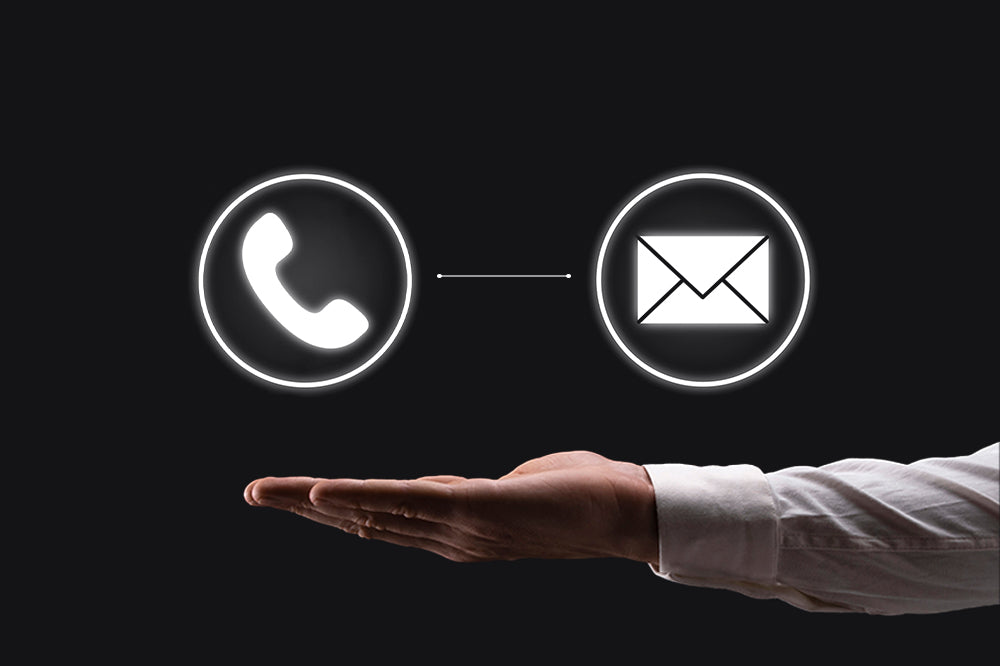Although phone support and email support serve the same purpose of answering customer queries and assisting them in placing an order, claiming refunds, or solving any complex tangible or intangible problem, the two mediums may still vary when it comes to the nature they host for interacting with customers and share different communication ethics.
It's no surprise that we can send an email to a client residing in a unique time zone at night rather than ring their phone and annoy them. Likewise, we can be relatively more comprehensive on the phone call and jot down the details of the customer order verbally, but without saving the information provided in the dialogue in the form of saved transcripts and e-tickets that are processed through an online CRM software.
The debate about finding the right customer support medium for your business is based on exclusive scenario-based ideas rather than the technical prowess of both platforms. The email support is "on the go," while the phone support capitalizes on "immediacy."
In the modern world, especially when customer support assistance is at the heart of e-commerce and B2B marketplaces, the two mediums have become directly proportional. Phone support has become as imperative as the email support, especially for products of a complex nature being offered to your target audience.
Using Phone Support For Your Business
Before integrating any service to accommodate our business, its pros and cons should be evaluated to gain a better understanding of its practical advantages to our ventures.
Here's how we jot down the most beneficial dos and don'ts of the phone support for e-commerce stores, B2B's, and other FMCG's that are rung in routine by millions for verbal resolution.
PROS |
CONS |
| Response exclusivity for customers | Can evade customer privacy with wrong timings |
| Boosts customer confidence by 2x | Needs dedicated call-time to provide customer resolutions |
|
Best for building online rapport |
Can be intercepted by a Voicemail |
|
Great for solving complex issues with clear messages. |
Demands customer availability at present |
|
Higher customer satisfaction ratio than email |
Unclear call quality leads to customer ambiguity |
Using Email Support For Your Business
Read The Pros & Cons
Email support entails a sense of professionalism and finds its place in the digital memory. Plus, it offers the option to send our message to the customers with the inclusion of images and videos to create a better representation of the company you are from.
Usually, email support follows delayed customer responses that could hinder the process of improving sales right away, compared with the exclusivity of phone calls, but at the same time, it keeps the possibility stretched open for more customer subscriptions in the long run.
PROS |
CONS |
| Send to 1000+ recipients at once | Can be restricted with spam at times |
| Send It Anytime | Requires a valid email address to work |
|
Highly accessible (Phone, Tablet, or Laptop) |
Results in information overload |
| Get digital preview for countless times |
Comes with attachment upload limit |
|
Allows multimedia attachments (video or picture) |
Underperforms in overcrowded inboxes |
FINAL THOUGHT:
Due to high-velocity transactions being done on e-commerce stores, it has become imperative to instill our businesses with either phone support, e-mail support, or, better yet, the omni-channel support which is a combination of Email, Phone and Live Chat!
It means that the right mix of customer support helps in generating new leads, sustaining old prospects, and improving the customer experience. Email and phone support, on the other hand, follow the same agenda of pushing the envelope for customers by answering their queries with a legitimate, timely, and doable approach.

